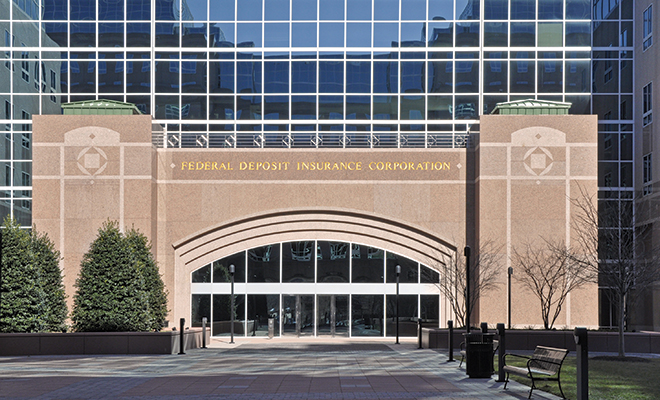
What Does the FDIC Do?
COVID-19 sent many of us scurrying for toilet paper and disinfectant, but a few Americans took it as an opportunity to withdraw much, if not all, of their money out of their banks. Whether they had lived through the Great Recession of the 1930s or simply read about it in history books, the uncertainty of the safety of their money frightened them into taking this problematic action.
“Your money is safe at the banks. The last thing you should be doing is pulling your money out of the banks now, thinking that it will be safer someplace else. You don’t want to be walking around with large wads of cash or certainly don’t want to be hoarding it under your mattress. It didn’t pan out so well for so many different people,” noted Jelena McWilliams, FDIC chairman. “No depositor has lost a penny of their insured deposits since 1933 when the FDIC was created. If you’re talking about having your money in a safe place, please keep it in an FDIC-insured bank.”
Decades ago, the government created the Federal Deposit Insurance Corporation. It’s an independent agency of the United States government designed to protect you against the loss of your insured deposits if an FDIC-insured bank or savings association fails. FDIC insurance is backed by the full faith and credit of the United States government.
You don’t have to apply for this insurance; coverage is automatic whenever a deposit account is opened at an FDIC-insured bank. To be in the program, you must make sure your bank is insured and that your deposit doesn’t exceed the insurance limit for that ownership category. Check with your bank representative, look for the FDIC sign at your bank, call the FDIC at (877) 275-3342 or you can use the FDIC’s BankFind. This electronic tool allows you to access comprehensive material about all FDIC-insured institutions, including branch locations, the bank’s official website address, the current operating status of your bank and the regulator to contact for additional information and assistance.
Deposit insurance covers the depositors of a failed FDIC-insured depository institution dollar-for-dollar, principal plus any interest accrued or due to the depositor, through the date of default, up to at least $250,000. For example, if a person had a CD account in her name alone with a principal balance of $193,000 and $5,000 in accrued interest, the full $198,000 would be insured. The principal plus interest doesn’t exceed the $250,000 insurance limit for single ownership accounts. If a couple has $500,000 in a joint account, as well as $250,000 in an eligible retirement account, the entire $750,000 would be covered by the FDIC. Each co-owner’s share in the joint account is covered and the retirement account is a different account category. Remember, if you have more than $250,000 deposited in an account type with a single bank, you may need to spread your assets among multiple banks to ensure you are fully covered by the FDIC.
Not every fiscal product at a bank is covered by the FDIC. Deposit coverage depends on whether your financial product is a “deposit product.” This would include customary types of bank deposit accounts such as checking and savings accounts, money market deposit accounts and certificates of deposit. Also, cashier’s checks and money orders issued by the failed bank remain fully covered by the FDIC. And coverage is not limited to individuals. Eligible business accounts of a corporation, partnership, LLC or unincorporated organization at a bank are also FDIC-covered.
Historically, the FDIC pays insurance within a few days after a bank closing. Normally, it’s the next business day, and each depositor is provided with a new account at another insured bank in an amount equal to the insured balance of their account at the failed bank. In other cases, regulators may issue a check to each depositor for the insured balance of their account at the failed bank.
However, investment products such as mutual funds, annuities, life insurance policies and stocks and bonds are not deposits. Therefore, they’re not covered by FDIC deposit insurance. The contents of safe-deposit boxes are also not included in FDIC coverage. If you are a member of a credit union, you would be covered under the National Credit Union Share Insurance Fund, which is similar to the FDIC.
Though highly unlikely, bank failures do happen, and having accounts and financial products covered by the FDIC is critical to your financial well-being. Practically all banks now offer FDIC coverage, so you have fewer worries regarding your banking deposits. Thanks to the FDIC, banks have better and more controlled conditions that allow them to draw upon well-ordered tools to address financial complications without triggering a run. ■
Sources: fdic.gov and edie.fdic.gov.







